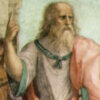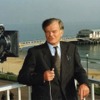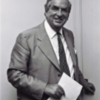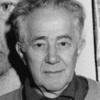Richard Crossman (1907–1974)
Author of The God That Failed
About the Author
Works by Richard Crossman
The Crossman Diaries: Selections from the Diaries of a Cabinet Minister 1964-1970 (1979) 72 copies, 1 review
Diaries of a Cabinet Minister. Vol 3: Secretary of State for Social Services, 1968-1970 (1977) 32 copies
A nation reborn; a personal report on the roles played by Weizmann, Bevin and Ben-Gurion in the story of Israel (1960) 17 copies
Molas, Isidre (trad.). 2 copies
A Palestine Munich? 1 copy
PLANNING FOR FREEDOM. 1 copy
Socialist foreign policy 1 copy
Associated Works
The Assassin's Cloak: An Anthology of the World's Greatest Diarists (2000) — Contributor, some editions — 578 copies, 8 reviews
Tagged
Common Knowledge
- Legal name
- Crossman, Richard Howard Stafford
- Other names
- Crossman, Dick
- Birthdate
- 1907-12-15
- Date of death
- 1974-04-05
- Burial location
- Oxfordshire
- Gender
- male
- Nationality
- England
UK - Birthplace
- Cropredy, Oxfordshire, England, UK
- Place of death
- Banbury, Oxfordshire, England, UK
- Cause of death
- cancer (liver)
- Places of residence
- Banbury, Oxfordshire, England, UK
Buckhurst Hill, Essex, England, UK - Education
- Winchester College
Oxford University (New College)
Twyford School, Twyford, Hampshire, England, UK - Occupations
- journalist
politician
author - Organizations
- Workers' Educational Association
Oxford City Council
New Statesman
Political Warfare Executive (WWII) - Awards and honors
- Order of the British Empire
Members
Reviews
Lists
Awards
You May Also Like
Associated Authors
Statistics
- Works
- 22
- Also by
- 3
- Members
- 822
- Popularity
- #31,034
- Rating
- 4.1
- Reviews
- 7
- ISBNs
- 44
- Languages
- 2















For a review in Commentary addressing other essays in this collection, see https://www.commentarymagazine.com/articles/george-lichtheim/new-fabian-essays-e...… (more)